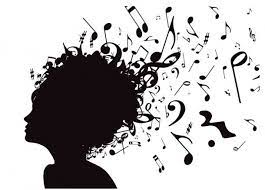Before we begin our training, every medical student is warned that this process takes sacrifice — and that some of the things that bring us joy will inevitably fall by the wayside. There’s less time for travel, less time to read for pleasure, to keep up with current movies and TV, to participate in the hobbies we love. Medical school is a behemoth — it swallows up every square inch of space and spare time. It’s inevitable and understandable, and for the most part, it’s a compromise every single one of us is willing and able to make. When they ask us in medical school interviews about a time we showed resilience, this is part of the reason — admissions wants to know if we have it in us to give up some things we love to make space for medicine.
All those tiny compromises we make every day make little moments of joy, of reconnecting to former loves and hobbies, all the more delicious. For many medical students at UACOMP, a quick path to experiencing those little bursts of peace and contentment is through music. I’ve always found there’s something deeply soothing about the active pastime of creating music and working with your hands to manipulate sound — and many of my peers agree.
MS2 Isabel Strouse, who grew up taking piano lessons for 7 years, says “my experience playing music has helped me stay grounded to my core identity…It’s been a way for me to remind myself that while medicine is a big part of my life, it doesn’t define me entirely.”
Playing music, then, is a way to take a pause, to reconnect with aspects of our identities outside of flashcard decks and exams and busy hospital floors. For medical students who started their instruments young, playing can be a way to maintain a connection with a past self. MS2 Emily Galloway, who has played piano for 18 years, says, “I can get lost in memories related to pieces I learned years ago or create new songs to capture my current moods.”
The benefits of playing consistently are layered and often complicated for musicians in medical school. For some, music is purely meditative. MS2 Jayden Gulber, who has played drums since the age of 5, and participated in jazz band all throughout his schooling, explains that music is a way to decompress and reconnect. He explains, “Playing music is a huge stress relief and way to decompress. It’s one of the most enjoyable things to me. It also provides a source of connection with my wife when we play music together”
For others, it’s a way to stay in touch with their emotions. MS2 Meher Rakkar says, “I tend to play music when I’m in any kind of heightened mood. My grandpa used to joke if he’d hear me playing ‘are we happy or sad today?’ because it’s usually one or the other lol but it’s a really reliable way for me to level out my emotions when I start to feel overwhelmed, and it’s a fun way to celebrate them when I’m having a great time.”
Other medical students take a more disciplined approach to music, which is understandable since learning an instrument properly takes years of rigorous practice and dedicated work. MS4 Julia Ghering, who began playing piano at age 5, picked up oboe at 8, saxophone at 12, sings in UACOMP acapella group the Vocal Chords, and remains an active member of the Arizona Wind Symphony throughout medical school, believes there’s a direct connection between her musical experiences and the rigors of medical school. “In band, the hours of practicing are very similar to the hours of practice in medicine. It’s something you have to stick with, and you’re not going to be perfect at it at first but if you keep doing it you’ll just get better and better.”
Ghering also sees parallels between growth as a musician and as a future physician. She sees a connection between musical collaboration and medical collaboration: “Every instrument is so different and it reminds me of the different specialties in medicine, but at the end of the day we’re all playing for the same performance and the same piece…there may be different notes that we’re playing but we’re all doing our best for the patient.”
Music can challenge and enrich the lives of medical students — and hopefully even inspire us towards seeing a less stressful future. Medical school can be overwhelming — we’re being presented with more medical knowledge than any generation prior has been confronted with. But music can be a way to envision a path towards mastery. MS2 Eric Jackson, a longtime guitar player, explains it best: “One thing that is interesting about playing music is how something so difficult to learn at first will eventually become so second nature that can just pour out of you without any thought. I hope school feels like that one day.”
It’s a comforting realization — that maybe anything can be learned, with enough dedication and care and time. Or at least, let’s hope it can.
Asif Becher is a member of the class of 2024, planning on going into psychiatry. In her spare time she enjoys music, writing, baking, and trying to get her cat to stop ignoring her.

